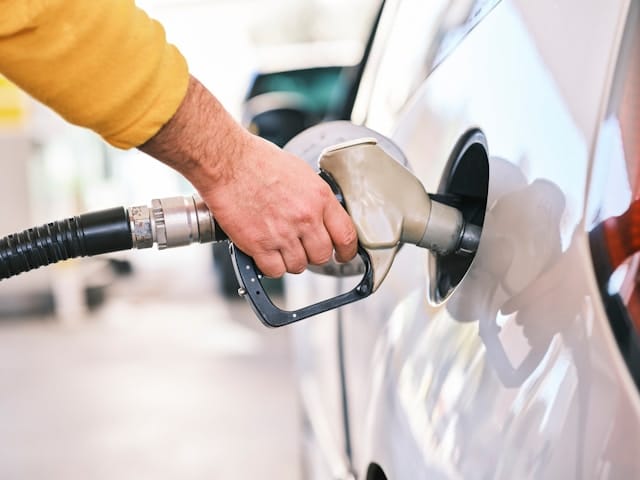Can Collision Damage Affect Your Car’s Fuel Efficiency?
 Collision damage, whether minor or major, can have a significant impact on your vehicle’s performance, including its fuel efficiency. At Chaney’s Collision Centers, we understand that even seemingly minor repairs can affect how your car runs, including how much fuel it consumes. Here’s a closer look at how collision damage can influence your car’s fuel efficiency and why timely repairs are crucial.
Collision damage, whether minor or major, can have a significant impact on your vehicle’s performance, including its fuel efficiency. At Chaney’s Collision Centers, we understand that even seemingly minor repairs can affect how your car runs, including how much fuel it consumes. Here’s a closer look at how collision damage can influence your car’s fuel efficiency and why timely repairs are crucial.
Understanding the Connection
Collision damage often involves more than just cosmetic issues. Structural components, such as the frame or body panels, can be compromised, affecting the vehicle’s aerodynamics and weight distribution. These changes can lead to increased drag and uneven weight distribution, both of which require more energy to overcome, resulting in decreased fuel efficiency.
Aerodynamic Impact
A damaged bumper or misaligned body panels can disrupt airflow around the vehicle, creating turbulence that increases drag. This added resistance forces the engine to work harder, consuming more fuel to maintain speed. Even minor dents or scratches can contribute to this effect if they alter the vehicle’s aerodynamic profile.
Weight Distribution
In some cases, collision damage can lead to uneven weight distribution. For example, if a vehicle’s frame is bent, it may cause the suspension to become misaligned, affecting how weight is distributed across the tires. This imbalance can lead to uneven tire wear, further reducing fuel efficiency as the vehicle struggles to maintain traction and stability.
Hidden Damage and Its Effects
Beyond visible damage, collisions can also compromise a vehicle’s mechanical integrity. Issues like misaligned wheels or damaged suspension components can cause vibrations and uneven wear on tires, leading to decreased fuel efficiency. These problems may not be immediately apparent but can significantly impact your vehicle’s performance over time.
In some instances, collision damage can indirectly affect engine performance. For example, if the vehicle’s air intake system is compromised, it may lead to inefficient combustion, reducing fuel efficiency. Similarly, damaged sensors or wiring can disrupt engine management systems, causing the vehicle to run less efficiently.
Importance of Timely Repairs
Addressing collision damage promptly is crucial for maintaining your vehicle’s fuel efficiency. By ensuring that all repairs are completed correctly, you can prevent long-term issues that might otherwise lead to increased fuel consumption and decreased vehicle performance.
While the initial cost of repairs might seem daunting, neglecting them can lead to higher fuel bills over time. By investing in timely repairs, you can save money on fuel and reduce the need for future maintenance.
Beyond fuel efficiency, timely repairs are also essential for safety. Collision damage can compromise critical safety features, such as crumple zones and airbag sensors, making your vehicle more vulnerable in future accidents.
Conclusion
Collision damage can indeed affect your car’s fuel efficiency by altering its aerodynamics, weight distribution, and mechanical integrity. At Chaney’s Collision Centers, we emphasize the importance of addressing these issues promptly to ensure your vehicle runs efficiently and safely. By choosing professional repairs, you not only maintain your car’s performance but also contribute to cost savings and environmental sustainability. Whether it’s a minor dent or significant structural damage, our team is dedicated to restoring your vehicle to its optimal condition.
